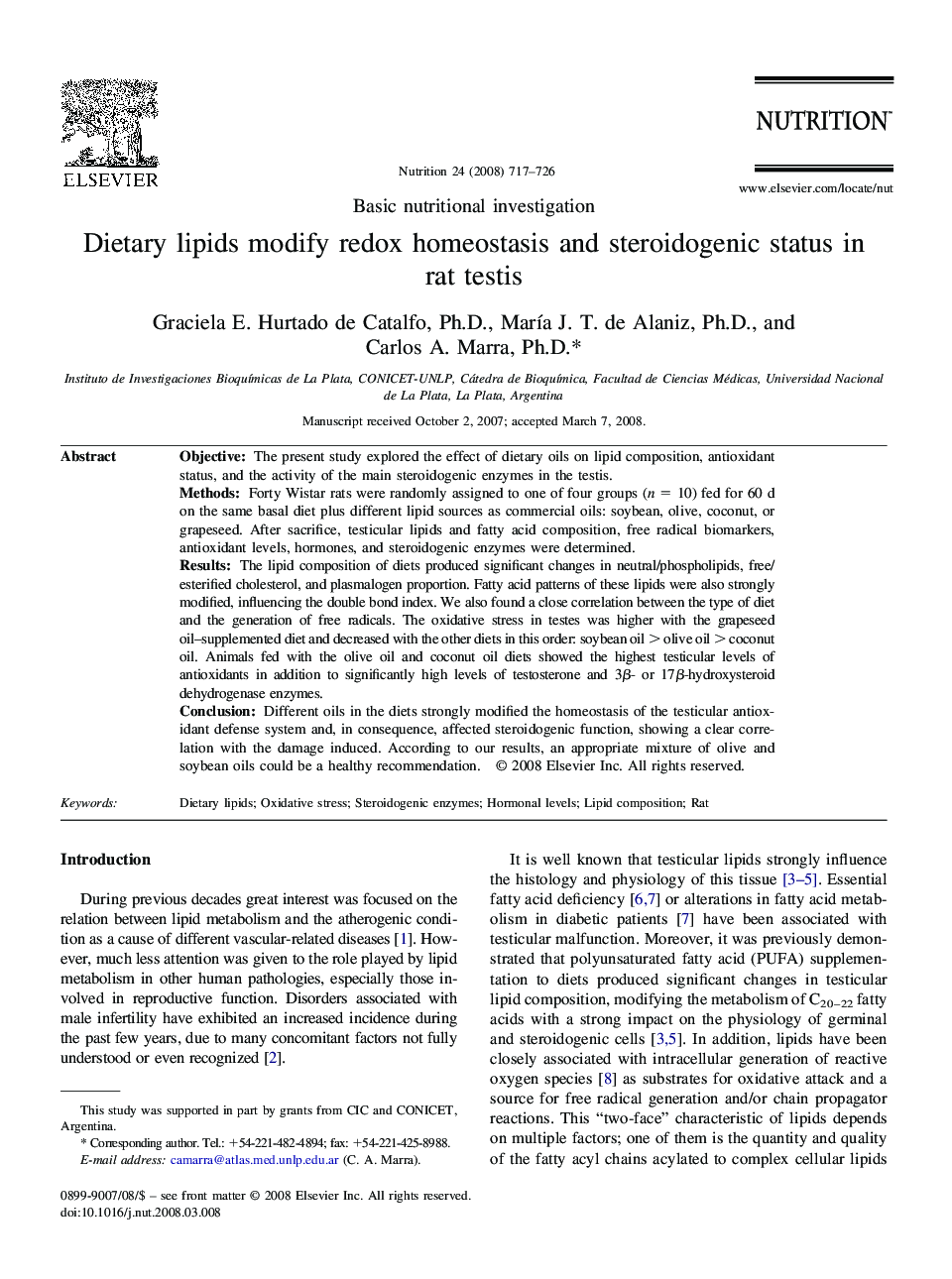| Article ID | Journal | Published Year | Pages | File Type |
|---|---|---|---|---|
| 3277400 | Nutrition | 2008 | 10 Pages |
ObjectiveThe present study explored the effect of dietary oils on lipid composition, antioxidant status, and the activity of the main steroidogenic enzymes in the testis.MethodsForty Wistar rats were randomly assigned to one of four groups (n = 10) fed for 60 d on the same basal diet plus different lipid sources as commercial oils: soybean, olive, coconut, or grapeseed. After sacrifice, testicular lipids and fatty acid composition, free radical biomarkers, antioxidant levels, hormones, and steroidogenic enzymes were determined.ResultsThe lipid composition of diets produced significant changes in neutral/phospholipids, free/esterified cholesterol, and plasmalogen proportion. Fatty acid patterns of these lipids were also strongly modified, influencing the double bond index. We also found a close correlation between the type of diet and the generation of free radicals. The oxidative stress in testes was higher with the grapeseed oil–supplemented diet and decreased with the other diets in this order: soybean oil > olive oil > coconut oil. Animals fed with the olive oil and coconut oil diets showed the highest testicular levels of antioxidants in addition to significantly high levels of testosterone and 3β- or 17β-hydroxysteroid dehydrogenase enzymes.ConclusionDifferent oils in the diets strongly modified the homeostasis of the testicular antioxidant defense system and, in consequence, affected steroidogenic function, showing a clear correlation with the damage induced. According to our results, an appropriate mixture of olive and soybean oils could be a healthy recommendation.
